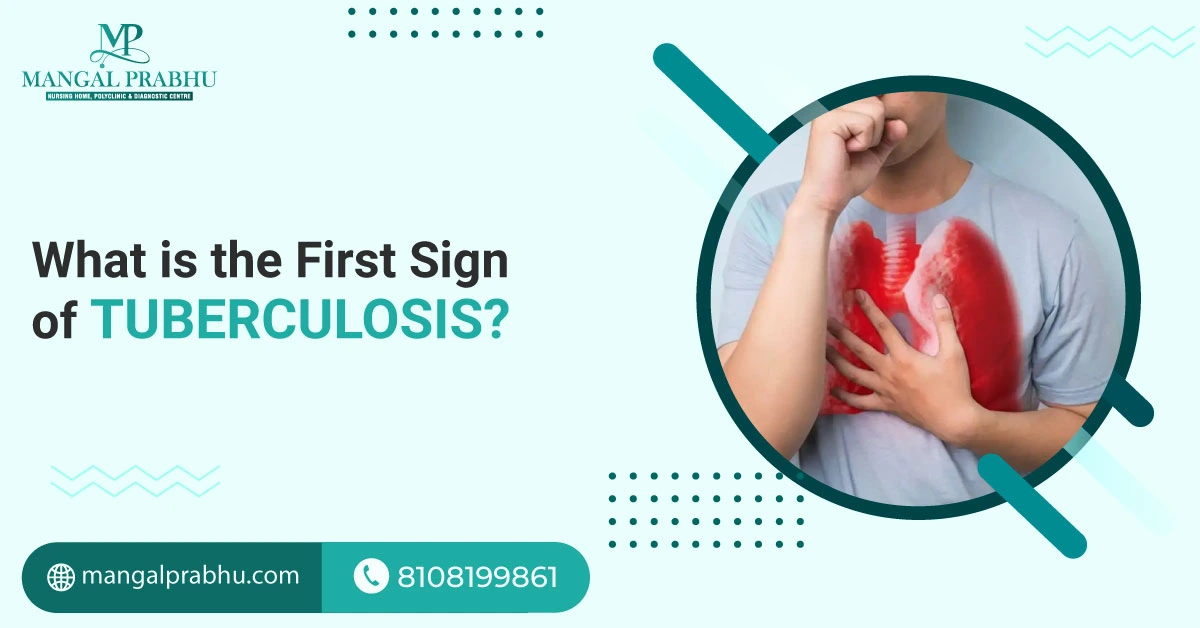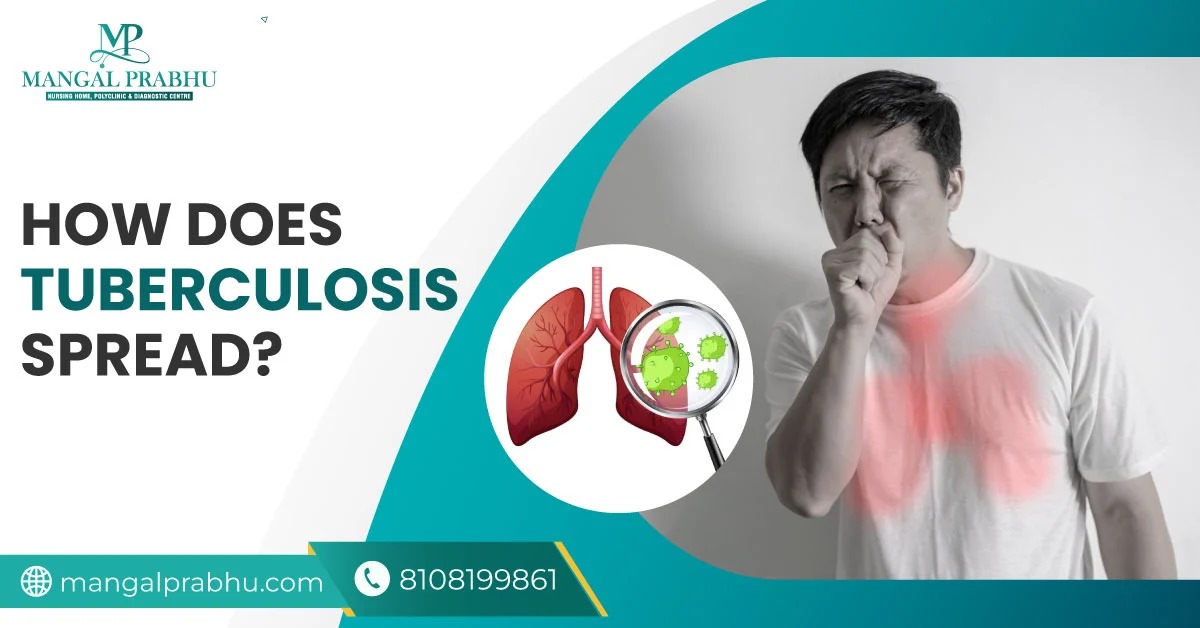
What is the First Sign of Tuberculosis?
Tuberculosis is a contagious illness caused by the bacteria Mycobacterium tuberculosis. The condition primarily affects your lungs, although it can also affect your brain, spine, and even kidneys, depending on where the germs have spread.
TB spreads when an infected person sneezes, coughs, laughs, and sings. Their droplets can contaminate the air, spreading the infection to people around them. TB can be confused with other lung-related illnesses, which is why it’s important to understand its symptoms and seek professional care from a top-rated pulmonologist in Navi Mumbai. If you are wondering what is the first sign of tuberculosis, read on.
Understanding Tuberculosis
Mycobacterium tuberculosis can be inside your body but with no apparent symptoms. It’s called dormant or inactive tuberculosis. If the bacteria produces symptoms, you may need to see a pulmonologist for timely treatment. People with a healthy immune function might have inactive tuberculosis.
These people aren’t contagious. Note that once the bacteria enters your body, it may become active later.
The First Sign of Tuberculosis
TB is categorized into different stages, and the symptoms can vary depending on that. Here are a few of the first common signs people with TB might experience.
1) Flu-Like Symptoms:
The primary stage is when your immune system detects the bacteria in your system and kills them. Some of these can survive and multiply in the lungs, leading to an active TB infection. At this point, you won’t have any severe symptoms. Some people report flu-like symptoms, like cough, low-grade fever, and cold. These are often confused with a seasonal cold.
2) Persistent Cough:
People with TB experience persistent coughs that last longer than three weeks and worsen over time. Initially, you might experience a dry cough followed by a cough that produces phlegm and blood.
3) Chest Pain:
Difficulty breathing, chest tightness, and pain are other warning signs of tuberculosis. These issues are more common in individuals with rapidly progressing infections.
4) Fever:
If you have a persistent low-grade fever that occurs mostly in the evening, it’s time to see a professional for a thorough evaluation.
5) Night Sweats:
If you find yourself drenched in sweat at night, it could signal an active infection. The sweat suggests your immune system is fighting off an infection.
6) Changes in Your Appetite:
In tuberculosis patients, an increased metabolism with a reduced appetite can result in significant weight loss. If you notice the above symptoms with a noticeable change in your appetite or an unexplained weight loss, it can be a sign of TB.
Importance of Visiting a Pulmonologist
TB can remain undiagnosed in the early stages, as most people confuse the symptoms with a common cold, flu, and bronchitis. The most common sign that sets TB apart from other contagious, lung-based illnesses is a persistent cough with mucus and blood. If you notice a cough with fever, chills, fatigue, and weight loss, consult a pulmonologist immediately. Early diagnosis can improve the treatment outcome. Find the best TB treatment hospital in Navi Mumbai and discuss your symptoms and treatment options with a professional.

How Does Tuberculosis Spread?
Tuberculosis (TB) is a contagious lung infection that can affect other vital organs, including the kidneys, the brain, and the spine. Caused by the bacteria Mycobacterium tuberculosis, TB was the most common cause of death in the United States in the 20th century.
Now, tuberculosis treatment in Navi Mumbai is possible, but it still poses health risks. Note that TB can be active or dormant. Active TB can spread and cause flu-like symptoms. Tuberculosis is classified as dormant if your symptoms do not show up or it doesn’t spread. Here’s all you should know about tuberculosis and how it spreads.
Modes of Transmission
TB is a contagious illness that can spread from one person to another if they come in contact. Let’s understand the common modes of transmission.
1) Inhalation of Infected Droplets:
When someone with an active TB laughs, talks, or smiles, the germs can spread in the air. You can inhale these germs and get infected. The good news is that people with a good immune system can fight infection easily. They can develop latent TB that stays in their system and won’t cause any problems. The bacteria can, however, become active later.
2) Close Contact With an Infected Person:
If you live with someone who has an active TB or are in touch with colleagues, friends, and relatives with this contagious disease, there’s a chance you might contract tuberculosis. The risk is higher in people living in poorly ventilated spaces. This allows the bacteria to linger in the air for longer periods, increasing the risk of inhalation.
3) Contaminated Objects:
TB bacteria can also spread through contaminated surfaces. The risk is lower since the bacteria cannot survive for a prolonged period in a dry environment. You can develop an active TB if you touch a contaminated surface with live bacteria and transfer it to your body through the nose or mouth.
Factors That Contribute to the Spread
Certain factors increase your risk of contracting the illness. They include:
a) Lack of Awareness:
It’s important to understand the types of tuberculosis and how it affects each person differently. You must stay away from someone with a high temperature, persistent coughing, and other flu symptoms. Likewise, if you have tested positive for tuberculosis, keep your distance from your close ones.
b) Overcrowded and Unsanitary Conditions:
Although TB bacteria don’t survive on surfaces for long, you might contract tuberculosis from touching a contaminated surface. So, keep your surroundings clean and avoid overcrowded places.
c) Weakened Immune Systems:
People with weak immune systems, such as HIV-positive patients, are more likely to catch the TB bacteria than others.
Prevention and Control Measures
The Bacillus Calmette-Guérin (BCG) shot is given to newborns to protect them against tuberculosis. You must keep up with your child’s vaccination schedule to reduce the risk of TB and other bacteria-induced illnesses.
Early detection of tuberculosis can improve your treatment outcome, as early-stage tuberculosis is comparatively easier to treat than when it’s reached an advanced stage. See a pulmonologist in Navi Mumbai if you suspect TB symptoms.
